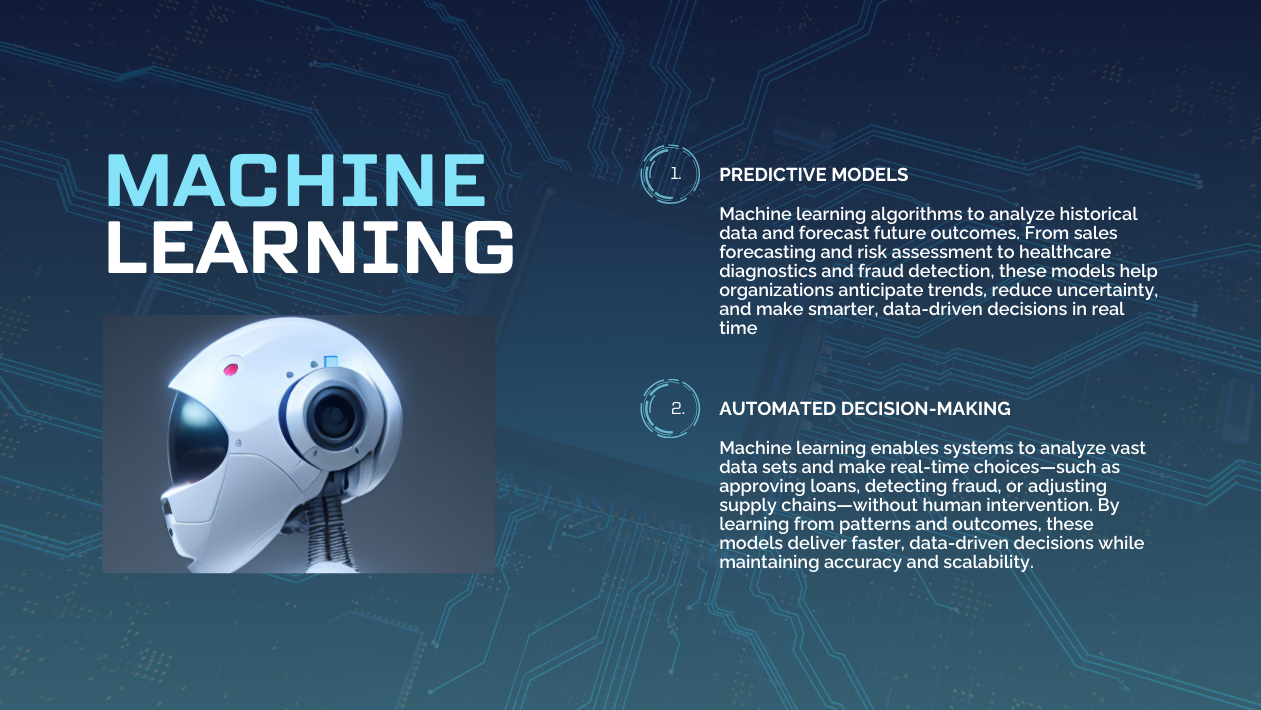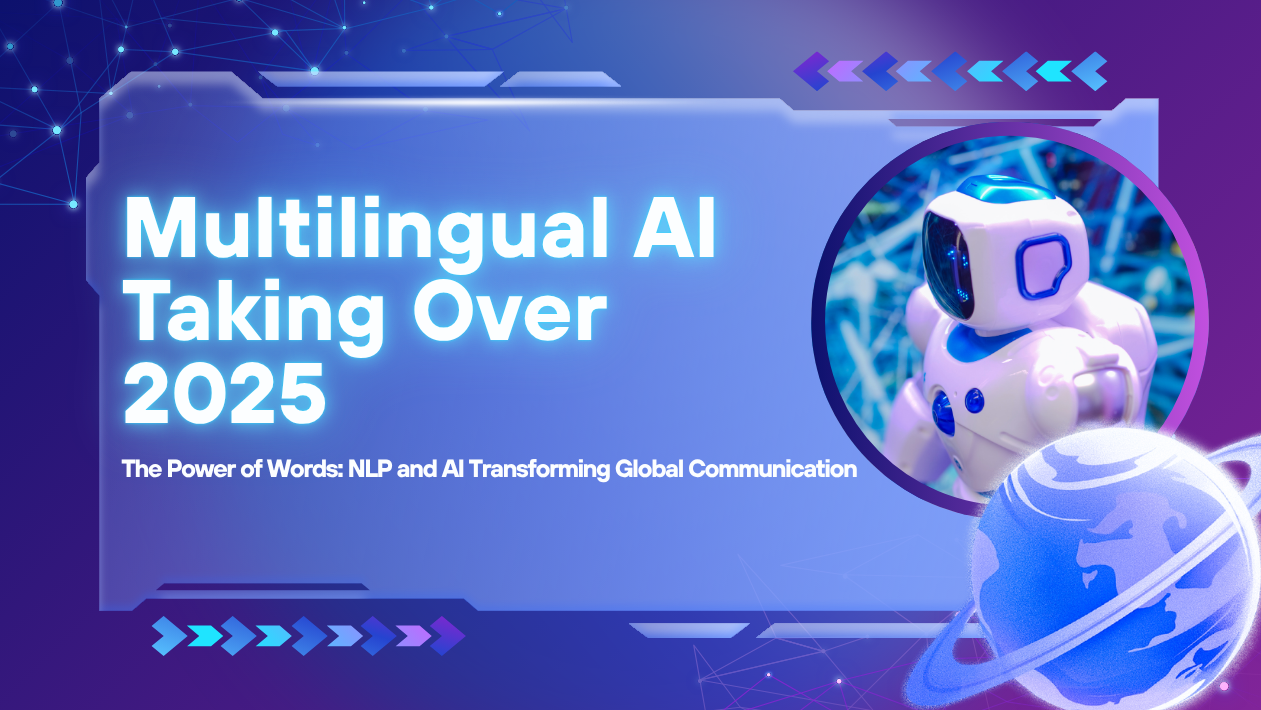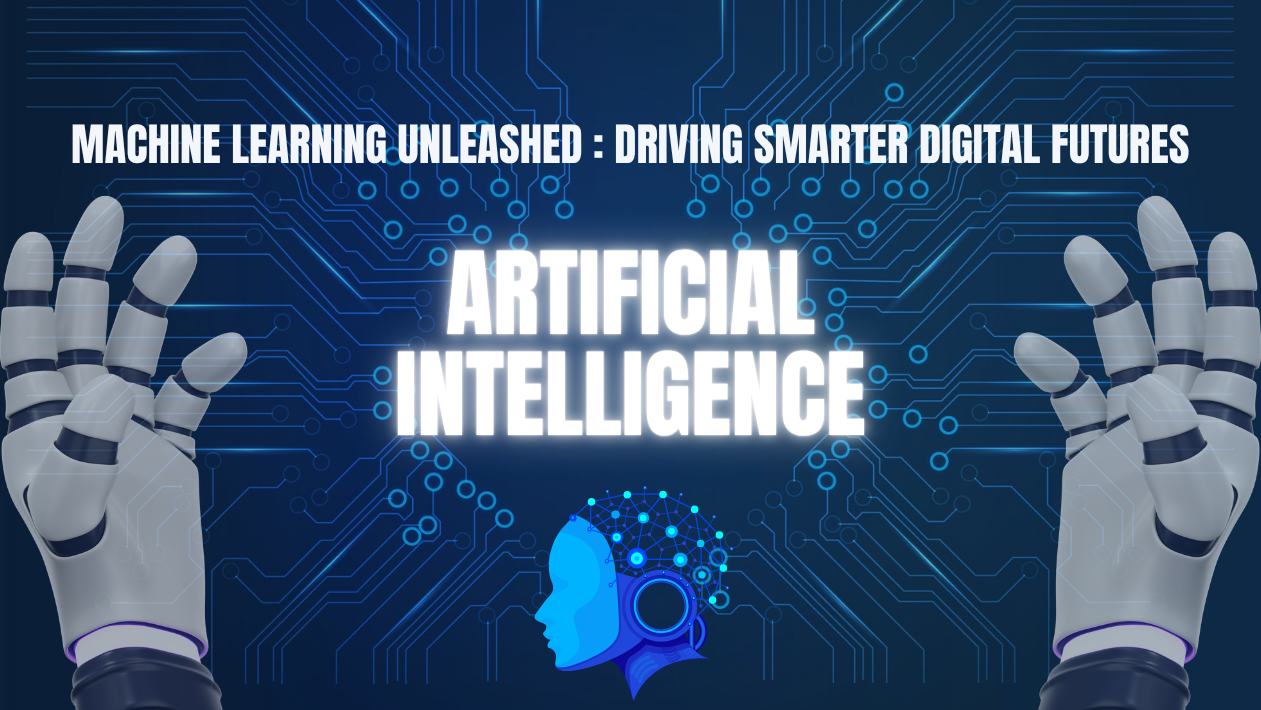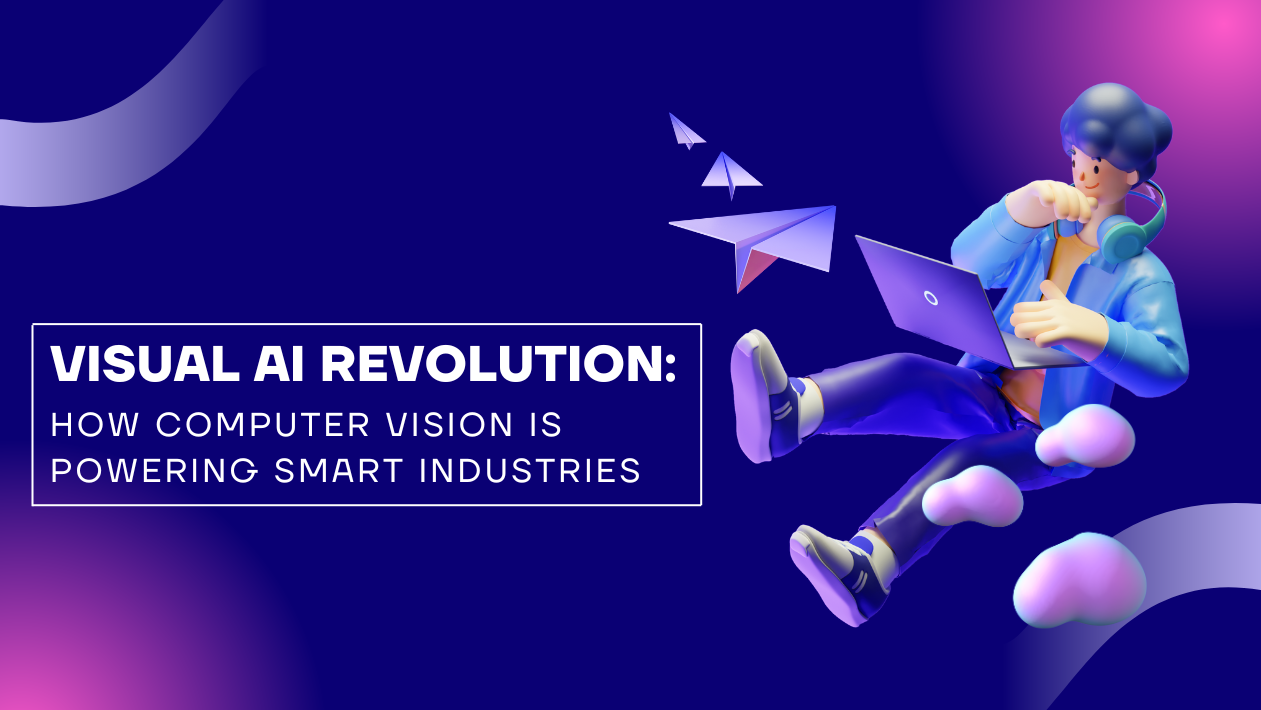Machine Learning (ML) has moved from experimental projects to a core driver of enterprise strategy in 2025. With breakthroughs in real-time analytics, generative models, and edge deployment, organizations across finance, healthcare, manufacturing, and retail are using ML to predict trends, automate processes, and personalize customer experiences at unprecedented scale.
Generative AI Expands ML Applications
The fusion of ML and generative AI is revolutionizing how businesses create content, design products, and simulate scenarios. Enterprises are using ML-powered generative tools to:
- Prototype new products in manufacturing
- Model financial forecasts with dynamic accuracy
- Create synthetic datasets to train specialized models without privacy concerns
These capabilities are helping companies shorten development cycles and unlock new revenue streams.
Edge Machine Learning Delivers Instant Insights
Advances in edge computing mean ML models can now run directly on devices such as smartphones, autonomous drones, and IoT sensors. This reduces latency and improves data privacy for critical tasks like:
- Predictive maintenance in industrial equipment
- Real-time safety monitoring in smart cities
- Instant fraud detection in financial transactions
Edge ML adoption is projected to grow 40% year-over-year as industries seek faster, decentralized intelligence.
Healthcare and Life Sciences Lead High-Impact Use Cases
Hospitals and biotech firms are using ML for early disease detection, drug discovery, and personalized treatment plans. AI-assisted diagnostic systems now match or exceed human experts in spotting cancers and genetic disorders, while ML-driven genomics accelerates the development of precision medicine.
Finance, Retail, and Logistics Embrace Predictive Analytics
Banks leverage ML to improve credit scoring, algorithmic trading, and anti-money laundering detection. Retailers deploy ML for hyper-personalized recommendations, demand forecasting, and dynamic pricing. Logistics providers rely on ML to optimize routes, lower fuel costs, and reduce delivery times.
Responsible AI and Model Governance Take Center Stage
As ML systems scale, concerns around bias, explainability, and data privacy remain critical. Regulators worldwide—led by the EU’s AI Act and emerging U.S. standards—are enforcing rules on transparent algorithms, auditing, and ethical data use. Companies are investing heavily in model governance platforms and fairness testing to ensure compliance and public trust.
The Road Ahead: Continual Learning and Autonomous AI
The next frontier is continual learning, where ML models update themselves in real time without retraining from scratch. Combined with autonomous AI agents, this will enable systems that adapt to changing environments—from self-optimizing factories to real-time financial advisors.
Machine learning in 2025 is no longer just a technology; it’s a strategic imperative shaping the competitive landscape across every major industry.





